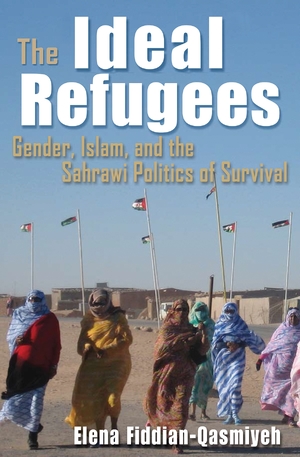"After reading this nuanced, eye-opening ethnography, I will never again hear the deceptively simple phrase 'military interpreters' without pausing to think of Meena, of her complex navigations of identities, statuses, obligations, and opportunities. She and the other Iraqi women and men whose lives Campbell brings to life here teach us to think more realistically about the genderings of militarism and the dilemmas faced by refugees."—Cynthia Enloe, author of Nimo's War, Emma's War: Making Feminist Sense of the Iraq War
"Campbell illuminates what is often forgotten about the US war on Iraq—its imperial practices of cultural translation and the new dilemmas produced for Iraqi diasporas over family, loyalty, and belonging. This book is essential reading for anyone concerned with US militarism, immigration and diaspora, Arab Americans, cultural studies, and gender studies."—Nadine S. Naber, author of Arab America: Gender, Cultural Politics, and Activism
"An extremely important topic. . . . The book tells stories of individual Iraqis negotiating lives between Iraq and the US within the context of families, societal norms, economic needs, gendered expectations, nationalist feelings, responsibilities to others, and individual desires."—Dina Khoury, professor of history and international affairs, George Washington University
"The role of interpreters in the US occupation of Iraq has come to the attention of cultural studies scholars in the past few years. Few, however, have tackled them in the multi-faceted manner that Campbell does. Her contribution is a significant one."—Rochelle Davis, associate professor at the Center for Contemporary Arab Studies, Georgetown University
"Campbell’s insider’s look at gendered policies toward translators and refugees, sexual harassment, gender inequalities, and themes of cultural belonging explains how structural programs meant to “help” Iraqi women actually harm them. She makes powerful and relevant recommendations for changes in refugee and resettlement programs. Highly recommended."—Choice
Description
During the Iraq War, thousands of young Baghdadis worked as interpreters for US troops, becoming the front line of the so-called War on Terror. Deployed by the military as linguistic as well as cultural interpreters—translating the “human terrain” of Iraq—members of this network urgently honed identification strategies amid suspicion from US forces, fellow Iraqis, and, not least of all, one another. In Interpreters of Occupation, Campbell traces the experiences of twelve individuals from their young adulthood as members of the Ba’thist generation, to their work as interpreters, through their navigation of the US immigration pipeline, and finally to their resettlement in the United States. Throughout, Campbell considers how these men and women grappled with issues of belonging and betrayal, both on the battlefield in Iraq and in the US-based diaspora.
A nuanced and richly detailed ethnography, Interpreters of Occupation gives voice to a generation of US allies through their diverse and vividly rendered life histories. In the face of what some considered a national betrayal in Iraq and their experiences of otherness within the United States, interpreters negotiate what it means to belong to a diasporic community in flux.
Table of Contents
Introduction: Global Routes—Baghdad to Boston
1. The Last Ba’thist Generation
2. Life and Work as a Military Terp
3. Honor and Terror on Loyalty Base
4. Reconstructing Patriarchy on Patrol
5. From American Ally to Iraqi Refugee
6. Inside the Refugee Network and across Borders
Conclusion
Glossary
Works Cited
Index
About the Author
Madeline Otis Campbell is assistant professor of urban studies and director of the Center for Human Rights at Worcester State University.
Related Interest
Series: Gender, Culture, and Politics in the Middle East
6 x 9, 280 pages, 4 black and white illustrations
May 2016




